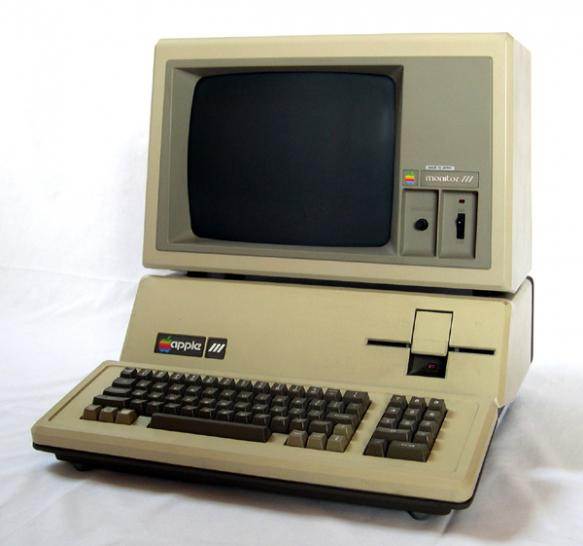Why is it that certain
computer still evoke a satisfyingly warm response from computer enthusiasts the
world over? Just one mention of the letters ZX or QL will have many a grown man
weeping into his mouse with delight over fond memories of playing around with a
box of, by modern standards, relatively uncomplicated bits and bobs.

Classic computing seems like it’s found
its niche and will always be a part of the technology industry.
Whether it’s gaming
pleasures with the likes of Manic Miner and Horace Goes Skiing, or reliving
memories of taking that first step into programming and gaining a greater
knowledge of these once-futuristic machines, classic computing seems like it’s
found its niche and will always be a part of the technology industry. The fact
is that modern consumers seem increasingly interested in these bygone eras,
with the word ‘retro’ becoming a label of genuine marketing power.

In short, where do you go to find dare
parts for your retro computer builds and indeed entire retro computers,
generally?
The scene surrounding
retro computing is, of course, a well-established one and we have long
championed those among us who can be found roaming around their garages or
lofts, stacking away yet another piece of classic kit for use on another day.
One of the more pressing problems surrounding the preservation of elderly kit
is the thorny issue of what to do when a keyboard breaks, or a socket no longer
works. In short, where do you go to find dare parts for your retro computer
builds and indeed entire retro computers, generally?
Like the friendly
computer article- writing imps that we are. We’ve been speaking to some of the
people in the trade who offer to help with just this very issue. Here’s what
they had to say.
Computer Fairs and meets
As is often the case
when dealing with enthusiast pursuits, among the very best places to start when
trilling to get hold of parts are people just like you. The chances are that in
our locale, or certainly within driving distance, there will be a chap or chapess
with a similar mindset to your good self who will have collected his or her own
share of retro machines over the years and it’s just possible that they might
have something you’re after.
If the idea of finding
these people for yourself and heading directly to their home doesn’t exactly
appeal, why not take advantage of the resources at your disposal which have
done all the hard work for you?
Taking my own fair
Leicestershire as an example, the Retro Computer Museum (www.retrocomputermuseum.co.uk) is, as you’d no doubt expect, a tribute to all that
is classic in computing. Describing itself as a registered charity “dedicated
to the benefit of the public for the preservation, display and public
experience of computer and console systems from the 1960s onwards”, the museum
concentrates on home computers from the early Pong consoles, through to the
likes of Sega, Nintendo and, of course, the Spectrum, Amiga and Commodore
systems.

Taking my own fair Leicestershire as an
example, the Retro Computer Museum is, as you’d no doubt expect, a tribute to
all that is classic in computing.
As well as
establishing its own tribute to these mighty machines of the past, the museum
actively encourages others to feed their own retro obsessions by holding events
throughout the year. Donations to the museum are a key part of any such events,
but trading also plays a massive role.
The museum’s chairman,
Andy Spencer, told me that the organization holds “two to three large events
per year, something we’ve done for the past five years in fact,” and that “at
these events, we have traders that deal in second hand retro kit and suppliers
of ‘spares’ too.”
The museum has also
recently moved to new premises allowing it to open on weekends. “AT the new
premises we hold quite a few spares of our own, which we are willing to share
for a small donation to the museum,” Andy added. “We also have a fully fitted
out workshop where can repair our own, and other people’s, machines.”

Northern Computer Markets (www.computermarkets.co.uk) have been established since 1992, taking place every
Saturday and Sunday and even on some weekday evenings
Outside of
Leicestershire, computer fairs can be found up and down the country, allowing
traders to get out of the office and place parts into the hands of willing
buyers. Northern Computer Markets (www.computermarkets.co.uk) have been established since 1992, taking place every
Saturday and Sunday and even on some weekday evenings. Giving traders the
chance to sell parts to a wide-ranging and eager public, these large-scale
events require a fair amount of trawling on the part of the buyer – but,
because of the amount of sellers on display, the chances of finding something
of interest/use aren’t bad. It is fair, however, to say that you need the
stomach for a long day.
Also, you should hone
those negotiating skills before you turn up, as there is typically a chance to
bargain with traders. It’s also true that many parts simple wont’ be found at
these sort of more populist events, although finding whole systems might be
more possible. For the rarer items, then a bit of specialist help may be
required.